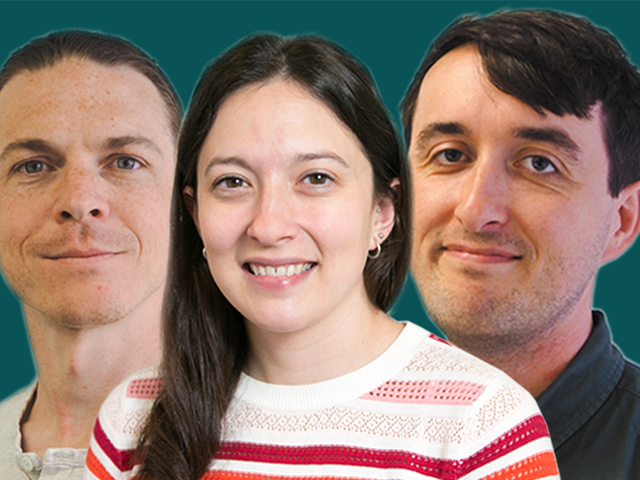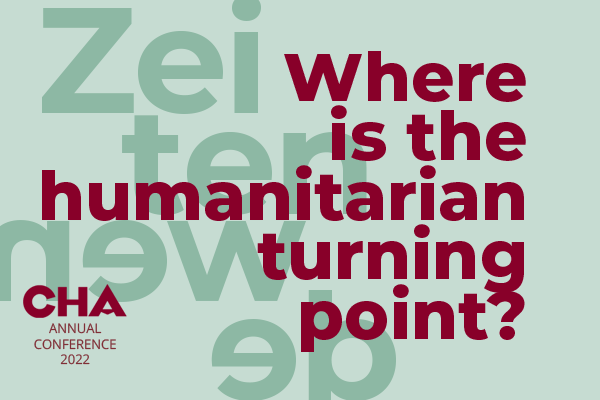New technology-driven approaches are already an integral part of humanitarian responses. These technologies have many benefits for aid users and aid organisations. But they also deepen the power imbalance, they have impacts on inclusion.
Oliver Lough, Kerrie Holloway and John Bryant, all researchers for the Humanitarian Policy Group, ODI, explain how and why in episode #11 of the CHAtroom.
Show Notes:
Kerrie Holloway is Senior Research Officer, Oliver Lough is Senior Research Fellow and John Bryant is Senior Research Officer for the Humanitarian Policy Group at ODI. Their areas of work include digital identity and biometrics, digital mapping and social media in humanitarian action, addressing the question: ‘What has been the impact of new technology-driven approaches to humanitarian action on inclusion?’
Quotes:
John Bryant
„What maps potentially do is they give visibility of […] affected people, potentially very marginalised people. They get visibility without consent. […] [But] invisibility is a really important protection strategy for a lot of marginalised people in humanitarian crises, and I don’t think that’s quite respected enough in a lot of these digital tools, instruments and responses.“
“[A more inclusive process] is going to need to be far more participatory and not just a consultation process at the end, but really starting from the point of view of what are the problems that aid users are facing in this context and then going from that.”
„The future, I’d like to see, is one […] where digital humanitarian technologies enable […] diversity.“
Kerrie Holloway
„[Refugees] can always refuse to give biometrics but it is very difficult to get cash transfers […] if you’ve not given biometrics. […] It’s difficult to say that they have an actual choice because the alternatives are so dire. “
„Banks and technology companies are not upholding humanitarian principles in the same way that humanitarian organisations should be doing and […] pushing some of that responsibility onto them […] means that you’re making things less secure for people.“
„I think digital rights more than digital tools is something we should really be focussing on.“
Oliver Lough
“While we’re talking about increasing use of fancy of the shelf solutions [..] a lot of humanitarian data and the humanitarian data system is really held together with hope and string and excel, often being used way beyond its capacity or not being used properly at all.”
“It’s helpful to think of [social media] as part of what we call the humanitarian space.”
„It’s important to flag that social media is not designed with humanitarian work in mind. It’s […] not a neutral environment. It’s harvesting and selling people’s desires for a profit. It’s driven by visibility and by popularity.“
„The starting point has to be that [new technolgy] is driven by the needs and the aspirations of affected people themselves rather than something we’re doing for our own benefits.“
Links:
HPG research program on the humanitarian ‘digital divide’
Digital identity, biometrics and inclusion in humanitarian responses to refugee crises
Digital mapping and inclusion in humanitarian response
Social media and inclusion in humanitarian response and action
Final report: Digital technologies and inclusion in humanitarian response
Jingle: lie by Clueless Kit
Question & Ideas: info@chaberlin.org





